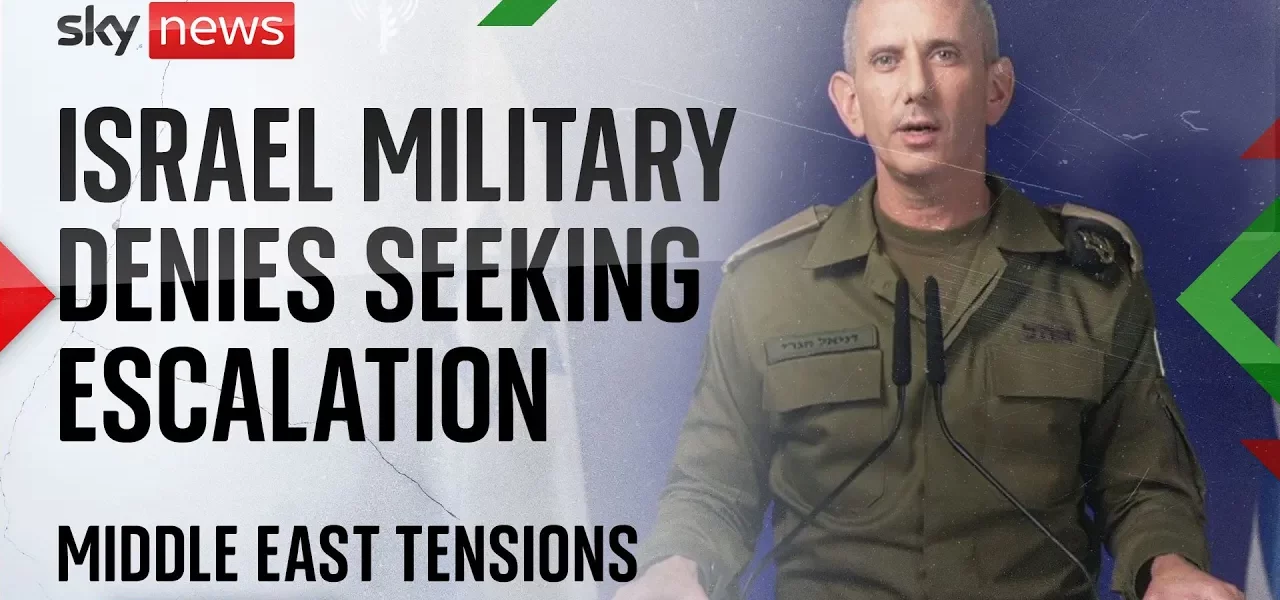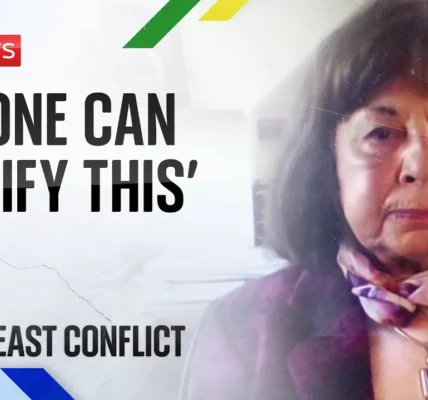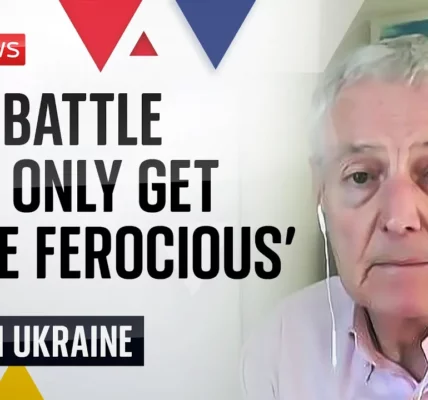IDF Spokesperson Daniel Hagari Addresses Threats from Hezbollah and Hamas

In a recent address, IDF spokesperson Daniel Hagari outlined the escalating threats posed by Hezbollah and Hamas in the ongoing conflict in the Middle East. This article explores the key points from his statements and the broader implications for regional security.
Introduction
The situation in the Middle East remains volatile, with recent developments shedding light on the threats faced by Israel from terrorist organizations like Hamas and Hezbollah. In his latest speech, IDF spokesperson Daniel Hagari articulated the dangers posed by these groups, particularly following their aggressive actions against Israeli civilians. This article delves deeper into Hagari’s statements, the historical context of these threats, and the implications for Israel’s national security and regional stability.
Key Threats from Hezbollah and Hamas
In his address, Hagari emphasized the ongoing threats from Hezbollah, specifically mentioning the group’s involvement in launching attacks against Israel. The following points highlight the key aspects of these threats:
- Background of Attacks: Hezbollah, under the command of Hassan Nasrallah, has been actively involved in military aggression against Israel, particularly following the events of October 7.
- Massive Rocket Fire: Over the past year, Hezbollah has reportedly fired thousands of rockets, suicide drones, and ballistic missiles into Israeli territory, leading to significant civilian displacement.
- Plans for Massacres: The group has openly declared intentions to execute a large-scale attack similar to the October 7 massacre carried out by Hamas, targeting Northern Israel.
Human Shields and Civilian Impact
One of the critical issues highlighted by Hagari is the tactic of using civilians as human shields, which Hezbollah has allegedly employed. This strategy poses severe ethical and legal challenges:
Hezbollah’s Tactics
Hagari pointed out that Hezbollah has constructed its military headquarters within residential areas, complicating Israel’s military response and increasing the risk to civilian lives.
International Law Implications
According to international law, targeting military headquarters situated in civilian areas can lead to complex legal implications. However, Hagari stressed that Israel’s military operations aim to minimize civilian harm, contrasting with Hezbollah’s tactics.
Regional and Global Implications
The threats posed by Hezbollah and Hamas extend beyond the borders of Israel, affecting regional and global stability:
Regional Instability
Hagari warned that Hezbollah’s actions could drag Lebanon and the surrounding region into a wider conflict, with potential repercussions for global security.
Iran’s Influence
Hezbollah’s alignment with the Iranian regime adds another layer of complexity to the situation. The support from Iran bolsters Hezbollah’s capabilities, raising alarms for not only Israel but also the international community.
Israel’s Response and Objectives
In light of these threats, Hagari outlined Israel’s primary objectives:
- Secure Hostages: The urgent need to bring home Israeli hostages currently held by Hamas.
- Ensure National Security: Strengthening Israel’s borders to protect its citizens from ongoing threats.
Hagari affirmed that the IDF remains committed to these goals while striving to avoid escalation and prioritize the safety of civilians.
Conclusion
Daniel Hagari’s statements reflect the serious and multifaceted threats posed by Hezbollah and Hamas to Israel and the broader Middle East. As tensions rise, understanding these dynamics is crucial for grasping the complexities of the ongoing conflict. It is imperative for the international community to recognize these threats and support efforts aimed at achieving peace and security in the region. For further insights on this topic, consider exploring our related articles on the Israel-Hamas conflict and regional security strategies.
“`




